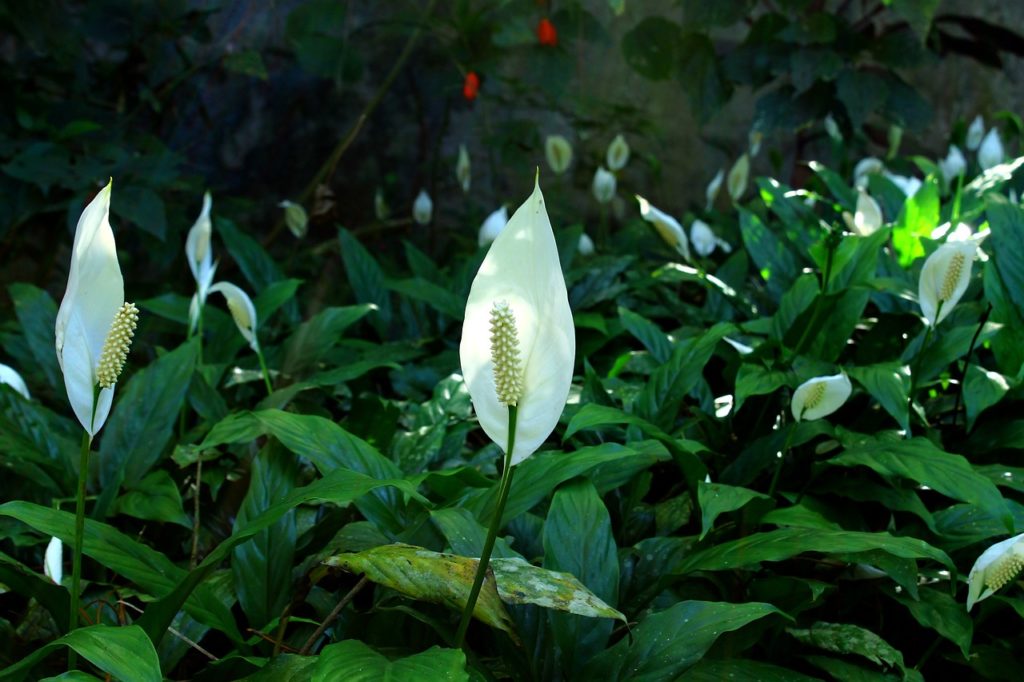After a few tries at indoor gardening, many people give up, assuming the thumb just isn’t green enough.
The problem usually boils down to having chosen a high-maintenance plant and giving it low-maintenance care.
We agree that having a plant in the house shouldn’t be like having another child around that you have to fuss over and take care of. Thankfully, there are many carefree, easy-to-grow indoor plants.
If you have children and pets in the home, ensure that whichever plants you choose are safe. You’ll find pet-safe houseplants listed at Gardenologist.org and those safe for children at Parents.com.
Heart-leaf Philodendron
The heart-leaf philodendron (Philodendron hederaceum) is a hardy, tropical vine that loves to climb the walls. You can put it in the sun or in the shade and it won’t matter, it will still thrive. However, it prefers a light area, out of the full sun.
When you find the ideal location in the home, the plant will pay you back with deep green, heart-shaped foliage.
Moist soil is the only demand from this plant and, even with that, it can be quite forgiving. Some growers swear that theirs grow better when they allow the soil to dry to about halfway down the pot.
While it’s actively growing, fertilize the heart-leaf philodendron once a month with a houseplant fertilizer, but dilute the fertilizer to half the recommended strength.
When winter rolls around, cut back on watering (allow the soil to dry out more than you do in spring and summer) and stop fertilizing until spring. Then, when you notice new growth, resume fertilizing.
Peace lily
The peace lily (Spathiphyllum wallisii ‘Clevelandii’) is a very pretty plant that prefers a bit of light, but it’s one of the most popular houseplants for its ability to thrive in the darkest corners of the home.
Allow the soil to dry out before watering, make sure the room temperature doesn’t drop below 55 degrees and your peace lily will be healthy. The peace lily rarely requires fertilizer.
As an added bonus, the peace lily helps to clean the air of potentially harmful gases, according to NASA.
There is one major downside to growing the peace lily indoors: it is toxic if ingested. If you have children or pets that like to munch on houseplants, this isn’t the one for you unless you can keep it out of their reach.

Jade
Jade (Crassula ovata) is one of the most popular succulents grown indoors, most likely because it’s so very easy to grow.
It does like light, but it doesn’t have to be direct sunlight. Any somewhat- sunny window is fine.
If you plant the jade in the appropriate medium (the commercial cactus mix is ideal), this is one of those plants you can put on the counter in the kitchen or bathroom and forget about it.
It needs good drainage, so if you don’t use a commercial cactus mix, plant it in a mixture of sand and peat moss. Take care not to overwater the plant. Watch the leaves and if they start to shrivel, it’s time to water again.
Palm trees
Yes, there are palms that are not only easy to care for but do well indoors. The kentia palm (Howea forsteriana) likes direct light but will tolerate lower light.
This is a palm that doesn’t need too much moisture either, just water when the top inch or two of soil is dry. You will want to fertilize the kentia in spring and again in summer. Use a fertilizer labeled for palms, with an 8-2-12 analysis.
Ensure the fertilizer also contains minor nutrients such as magnesium, sulfur, and iron. Follow the instructions on the fertilizer label and always apply fertilizer to moist soil.
As a rule of thumb, apply fertilizer granules at a rate of 1 tablespoon for a 6-inch pot, 3 tablespoons for a 10-inch pot, and ½ cup for kentia in a 14-inch pot.
If you are looking for a palm tree that will thrive in a little less light than the kentia, the lady palm (Rhapis excelsa) might be worth considering. It has similar watering needs and does better without fertilizer, so it’s truly a low-maintenance plant.

